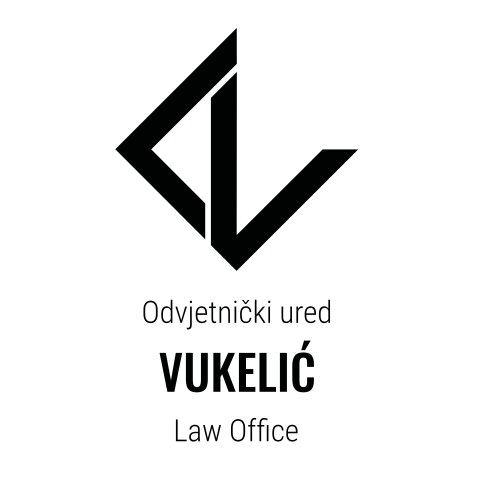Best Conveyancing Lawyers in Croatia
Share your needs with us, get contacted by law firms.
Free. Takes 2 min.
Free Guide to Hiring a Real Estate Lawyer
Or refine your search by selecting a city:
List of the best lawyers in Croatia
About Conveyancing Law in Croatia
Conveyancing in Croatia refers to the legal process of transferring property ownership from one person to another. This process involves various steps such as conducting property searches, drafting contracts, registering ownership, and ensuring that all legal requirements are fulfilled. The Croatian property market is popular both with local residents and international buyers, especially in coastal and tourist regions. Due to strict regulations related to land ownership and property transactions, it is essential to understand the laws and procedures governing conveyancing in Croatia.
Why You May Need a Lawyer
Conveyancing is a complex process in Croatia and involves significant financial and legal risks if handled improperly. People may require legal help in the following situations:
- Purchasing a new home or commercial property
- Selling property to another party
- Inheritance of real estate assets
- Resolving disputes related to property boundaries, ownership, or usage rights
- Verifying the legal status of a property
- Foreign nationals seeking to buy property in Croatia
- Transferring real estate ownership within a family
A lawyer ensures that the process complies with Croatian law and that your interests are protected throughout the transaction.
Local Laws Overview
Several key aspects of Croatian law are especially relevant to conveyancing:
- Land Registry (Zemljišne knjige): All real estate must be registered with the Croatian Land Registry, and ownership is valid only after proper registration.
- Proof of Ownership: Sellers must provide clear documentation of ownership and free title before the transaction.
- Pre-Emptive Rights: Certain individuals, such as co-owners or local authorities, may have the right of first refusal in some property transactions.
- Contractual Requirements: All property sale agreements must be in written form and verified by a notary public.
- Foreign Purchasers: Non-EU citizens face specific restrictions and may need Ministry of Justice approval to purchase real estate.
- Taxation and Fees: Transfer taxes, VAT, and local government fees apply to property sales and must be considered in advance.
Failing to comply with these rules can result in ownership disputes, fines, or invalid transactions.
Frequently Asked Questions
What documents are needed for a property sale in Croatia?
Typical documents include a valid land registry extract, proof of ownership, energy certificate, identification documents, and the notarized sales contract.
Do I need to use a notary for property transactions?
Yes, Croatian law requires the sales contract to be notarized for it to be valid. The notary also verifies the identities of the parties and ensures the contract meets legal requirements.
Can foreigners buy property in Croatia?
EU citizens can buy most types of property under similar terms as Croatian nationals. Non-EU citizens may face additional restrictions and may require governmental approval.
Who is responsible for paying property transfer taxes?
Generally, the buyer is responsible for paying the real estate transfer tax, which is usually four percent of the property’s market value unless VAT applies to a newly built property.
How long does the conveyancing process take?
The process can take several weeks to a few months, depending on document availability, registry procedures, and if any approval from authorities is required.
What are “encumbrances” on a property?
Encumbrances are legal claims or liabilities on a property, such as mortgages or liens, that must be cleared before the ownership can be transferred.
How is property ownership officially transferred?
Ownership is transferred by registering the buyer as the new owner in the Croatian Land Registry, based on the notarized sales contract and related documentation.
What role does a lawyer play in conveyancing?
A lawyer reviews contracts, conducts due diligence, identifies potential issues, provides legal advice, and represents clients during negotiation and registration stages.
Are there any risks in purchasing unregistered property?
Yes, buying unregistered property is legally risky, as your ownership rights may not be recognized. Proper registration is essential for legal protection.
What happens if a dispute arises after purchase?
If a dispute occurs, parties can seek mediation or file a lawsuit in court. Having a well-drafted contract and proper legal representation can help resolve issues more effectively.
Additional Resources
Here are some organizations and governmental bodies that provide useful information and assistance regarding conveyancing in Croatia:
- Croatian Ministry of Justice and Public Administration - responsible for approvals and property law matters
- Land Registry Offices (Zemljišno-knjižni odjel) - for official property records and registrations
- Croatian Notaries Chamber (Hrvatska javnobilježnička komora) - for finding certified notaries
- Croatian Bar Association (Hrvatska odvjetnička komora) - for lawyer referrals and legal resources
- Local Tax Offices - information on taxes and fees related to property transactions
Next Steps
If you are considering buying or selling property in Croatia, it is wise to take the following actions:
- Consider consulting with a qualified property lawyer early in the process
- Gather all necessary property documentation and have it reviewed by a legal professional
- Engage a notary public to ensure contracts are legally compliant
- Verify property status with the Land Registry before proceeding
- Clarify taxes, fees, and any restrictions with local officials
Understanding the legal landscape and working with accredited professionals will help you achieve a smooth and secure property transaction in Croatia.
Lawzana helps you find the best lawyers and law firms in Croatia through a curated and pre-screened list of qualified legal professionals. Our platform offers rankings and detailed profiles of attorneys and law firms, allowing you to compare based on practice areas, including Conveyancing, experience, and client feedback.
Each profile includes a description of the firm's areas of practice, client reviews, team members and partners, year of establishment, spoken languages, office locations, contact information, social media presence, and any published articles or resources. Most firms on our platform speak English and are experienced in both local and international legal matters.
Get a quote from top-rated law firms in Croatia — quickly, securely, and without unnecessary hassle.
Disclaimer:
The information provided on this page is for general informational purposes only and does not constitute legal advice. While we strive to ensure the accuracy and relevance of the content, legal information may change over time, and interpretations of the law can vary. You should always consult with a qualified legal professional for advice specific to your situation.
We disclaim all liability for actions taken or not taken based on the content of this page. If you believe any information is incorrect or outdated, please contact us, and we will review and update it where appropriate.
Browse conveyancing law firms by city in Croatia
Refine your search by selecting a city.

















